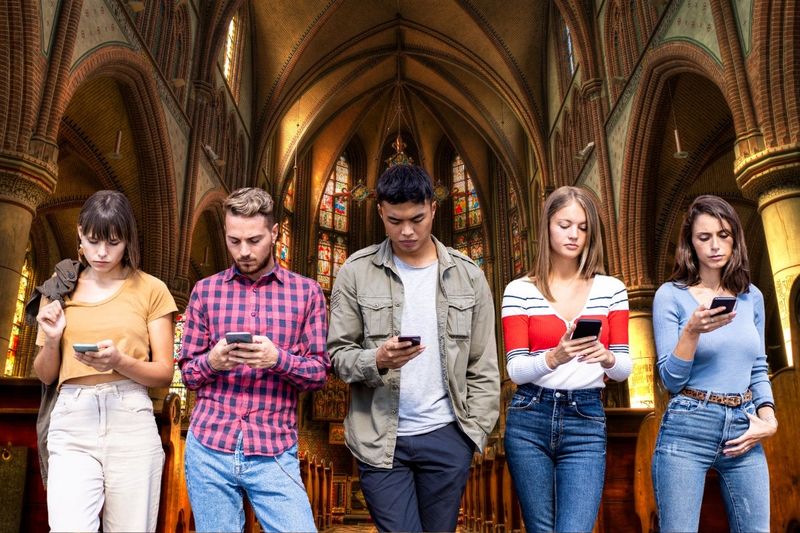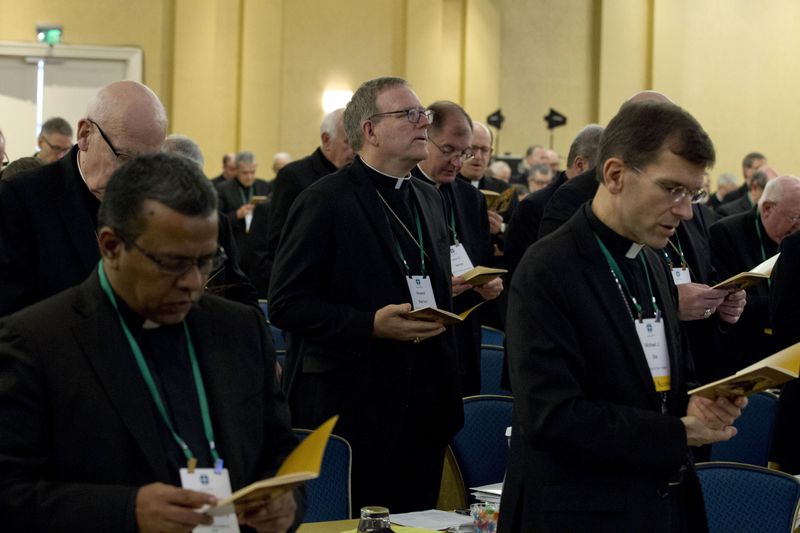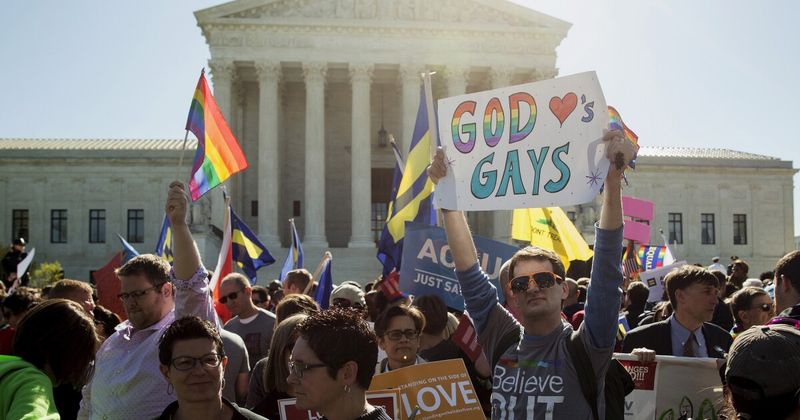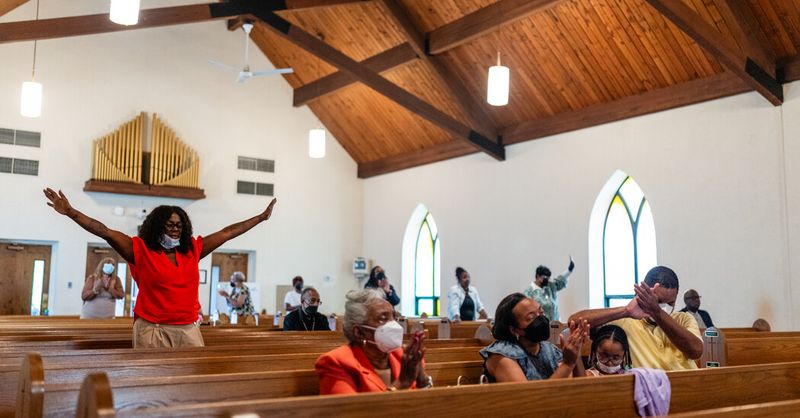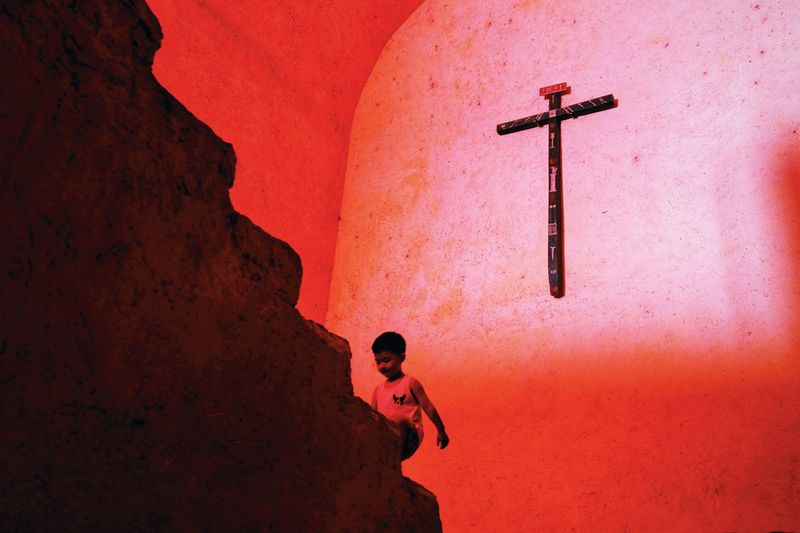Religious participation is changing dramatically among millennials. Born between 1981 and 1996, this generation is stepping away from traditional faith communities at unprecedented rates.
Their exodus from organized religion isn’t simple rebellion but reflects deeper cultural shifts, technological changes, and responses to perceived institutional failures.
1. Value Disconnection
Millennials increasingly find themselves at odds with religious institutions on fundamental issues. When churches oppose same-sex marriage while young adults celebrate their LGBTQ+ friends’ weddings, the contradiction becomes painfully clear.
The generation that grew up with diverse friend groups struggles to reconcile teachings that seem exclusionary. They question institutions that preach love yet practice judgment.
For many, the mental gymnastics required to maintain faith while disagreeing with core institutional positions becomes exhausting. Rather than compromise their principles, they quietly exit, seeking communities where their values of inclusivity and equality are celebrated, not merely tolerated.
2. Political Entanglement
Religious institutions have become increasingly entangled with political movements, creating uncomfortable environments for many young believers. The pulpit, once reserved for spiritual guidance, now often echoes partisan talking points.
Millennials, who tend to embrace progressive viewpoints on climate change, immigration, and social welfare, find themselves alienated when their faith communities align with conservative political agendas. Sunday services that feel like political rallies push them away.
The perception that one cannot be both religious and politically progressive forces an unnecessary choice. Many choose their political values over religious affiliation, especially when religious leaders present political alignment as a test of faith.
3. Institutional Scandals
Revelations of abuse cover-ups, financial mismanagement, and leadership corruption have shattered trust in religious organizations. Millennials grew up watching scandal after scandal unfold across denominations, from Catholic abuse cases to evangelical leaders’ moral failures.
Social media amplified these stories, making them impossible to ignore or dismiss. Young adults witnessed the gap between institutional response and true accountability.
The generation raised on transparency expects organizations to own their mistakes. When religious institutions respond with defensiveness rather than genuine reform, millennials walk away. They refuse to financially support or lend credibility to systems that protect abusers while silencing victims.
4. LGBTQ+ Rejection
Religious communities’ treatment of LGBTQ+ individuals creates an impossible situation for many millennials. They watch their gay friends endure conditional acceptance or outright rejection from faith communities that claim to embody love.
The psychological damage inflicted by conversion therapy programs and exclusionary policies contradicts millennials’ understanding of compassion. Many have LGBTQ+ family members or identify as queer themselves.
Witnessing religious institutions fight against equal rights legislation while claiming religious freedom creates a moral breaking point. Millennials increasingly refuse to participate in communities where their LGBTQ+ friends must hide their authentic selves or face rejection. The message becomes clear: if everyone isn’t welcome, many choose to leave together.
5. Personalized Spiritual Journeys
Millennials approach spirituality like they approach career paths—as a customizable journey rather than a predetermined route. They pick elements from various traditions that resonate with their lived experience, creating personalized spiritual practices.
Meditation apps, yoga studios, and nature hikes often replace church pews. These spaces allow for spiritual exploration without requiring doctrinal compliance.
The freedom to question, adapt, and evolve spiritually appeals to a generation raised on customization. Religious institutions that demand adherence to fixed beliefs feel constraining by comparison. Millennials seek authenticity in their spiritual lives, preferring practices that evolve with their understanding rather than systems that demand unchanging beliefs.
6. Global Perspective
Digital connectivity exposes millennials to worldwide belief systems in unprecedented ways. A generation that grew up with the internet can explore Buddhism, Hinduism, and indigenous spiritualities from their smartphones.
This exposure makes exclusive truth claims from any single religion seem increasingly implausible. Young adults recognize the role geography and culture play in religious identity.
Travel experiences, whether physical or virtual, reveal the beauty and wisdom in diverse traditions. Millennials question why they should limit themselves to the faith tradition of their birth location when the world offers rich spiritual diversity. The claim that one religion holds exclusive truth feels provincial to a generation with global awareness.
7. Authority Skepticism
Millennials grew up during institutional failures that shaped their worldview—financial crashes, endless wars, and political corruption. This generation naturally questions authority figures, including religious leaders claiming divine mandates.
Religious structures built on unquestioning obedience feel outdated to young adults accustomed to fact-checking claims online. They expect religious leaders to welcome questions rather than discourage them.
The internet age revealed that religious authorities sometimes misrepresent texts or traditions. Millennials can access original sources and scholarly perspectives directly. When religious leaders respond to legitimate questions with “just have faith” or accusations of insufficient devotion, millennials often choose to trust their own judgment instead.
8. Lifestyle Incompatibility
Traditional religious participation models clash with millennial lifestyles. Sunday morning services compete with essential recovery time for those working multiple jobs or nontraditional hours in the gig economy.
Geographic mobility means young adults frequently relocate for employment opportunities. Building connections in a new congregation takes time that many don’t have between moves.
Religious communities often center family units, inadvertently marginalizing single adults. Millennials, who marry later or remain single longer than previous generations, find these spaces awkward or unwelcoming. Religious institutions that haven’t adapted to changing life patterns lose relevance to young adults juggling complex modern demands.
9. Delayed Life Transitions
Religious institutions traditionally see attendance spike when people marry and have children. Millennials delay these milestones significantly compared to previous generations, often for economic reasons.
Student loan debt, housing costs, and career instability push traditional family formation into the distant future for many. Without these traditional reentry points, millennials remain disconnected from religious communities.
Faith groups structured around nuclear families unintentionally signal that single adults or childless couples don’t fully belong. Religious programming centered on parenting and marriage leaves little relevant content for those in extended young adulthood. The assumption that everyone follows traditional life trajectories alienates a generation experiencing dramatically different pathways to adulthood.
10. Religious Trauma
Harmful experiences within religious settings leave lasting psychological impacts that drive millennials away. Many carry wounds from purity culture teachings that shamed natural sexuality or created unhealthy relationship dynamics.
Others endured constant messaging about their inherent sinfulness or unworthiness that damaged self-image. The threat of eternal punishment for doubts or questions created anxiety rather than spiritual growth.
Mental health awareness helps millennials recognize these experiences as harmful rather than formative. They’re increasingly unwilling to subject themselves or their children to environments that triggered past trauma. The #ChurchToo movement revealed how widespread these negative experiences were, validating the decision to protect oneself by leaving harmful religious spaces.
11. Scientific Worldview
Millennials came of age during remarkable scientific advances—genome mapping, Mars rovers, and quantum computing. Their education emphasized evidence-based thinking and scientific literacy.
Religious communities that position faith against science create unnecessary cognitive dissonance. Young adults struggle with teachings that contradict established scientific understanding about evolution, climate change, or human sexuality.
Faith traditions demanding literal interpretations of ancient texts feel intellectually dishonest to a generation comfortable with metaphor and contextual understanding. Millennials seek religious spaces where scientific knowledge complements rather than contradicts spiritual insight. When forced to choose between scientific understanding and religious dogma, many prioritize evidence-based approaches.
12. Normalized Nonreligious Identity
Being nonreligious carries far less social stigma for millennials than previous generations. They grew up with visible atheist authors, comedians, and thought leaders who modeled ethical, meaningful lives without religious frameworks.
Social media connected those questioning their faith with others on similar journeys. What once felt like a lonely departure now feels like joining a growing community.
The rise of secular community organizations provides alternatives for finding meaning and connection. Millennials who might have reluctantly maintained religious affiliation for social belonging now find robust communities among the nonreligious. Being a “none” (no religious affiliation) is increasingly seen as a legitimate identity rather than a spiritual deficit.
13. Authenticity Demands
Millennials value authenticity above almost everything else. Religious environments that require performance of belief or conformity to unexamined traditions feel suffocating to a generation raised on authenticity as a core value.
Social media culture taught millennials to curate their public image. Many find religious spaces demand a similar performance of righteousness that feels exhausting and false.
The pressure to present perfect faith without acknowledging doubts creates cognitive dissonance. Religious communities where questions are discouraged and struggles must remain hidden feel fundamentally inauthentic. Millennials would rather honestly acknowledge their spiritual uncertainties than pretend certainty they don’t feel.
14. Situational Ethics
Millennials approach moral questions with nuance rather than rigid absolutism. They recognize that ethical decisions often involve competing values rather than clear right/wrong binaries.
Religious teachings that present simplistic moral frameworks fail to address the complexities of modern ethical dilemmas. Young adults find these approaches inadequate for navigating real-world situations.
The millennial generation values empathy and harm reduction over rule-following. When religious institutions prioritize doctrinal compliance over compassionate outcomes, millennials question the moral foundation itself. They seek ethical frameworks that acknowledge complexity and center human wellbeing rather than abstract rules divorced from consequences.
15. Spiritual But Not Religious Movement
“Spiritual but not religious” represents more than rejection—it’s an affirmative identity embraced by millions of millennials. This approach maintains belief in transcendent reality while rejecting institutional gatekeeping.
Millennials often practice spirituality through mindfulness, nature connection, and creative expression. These paths offer direct experience rather than mediated revelation.
The SBNR movement creates space for authentic spiritual seeking without doctrinal requirements. Millennials find freedom in exploring questions rather than memorizing answers. This approach honors spiritual intuition and personal experience as valid sources of insight, contrasting with traditional models where authority figures interpret divine will for the community.


